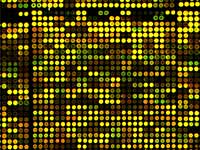|
|||||
| Faculty Information and Assistance | |||||
|
General Information | Faculty of Science Website | Course Descriptions | Computing Information | Enrolment Procedures
Science programs are built from the wide range of science and technology-based courses available across UNSW.
These programs are divided into two types: the general 'Science' and 'Advanced Science' programs, and a range of 'Vocational Science' programs oriented more toward professional or industry-based careers. These programs, and the courses which they are composed of, are described in more detail in the individual Online Handbook program record. However, the information that follows in this section applies equally to both types of program. Educational and academic activities at UNSW are organised and administered in faculties. The Faculty of Science is focused towards providing teaching and research in the sciences. Other faculties, including Engineering, Medicine, Arts and Social Sciences, and Commerce and Economics, also make a major contribution to activities in the sciences. The basic educational building blocks in the sciences are the courses which students take. These courses are drawn together into majors, minors, and study plans providing coherent development of specific disciplines, and these programs are in turn drawn together to form degrees or programs. These majors, minors, and study plans are listed in more detail in the individual Online Handbook program record. Please refer to the Faculty of Science website for further information: www.science.unsw.edu.au.
Descriptions of courses offered in 2007 can be found in the Online Handbook at legacy.handbook.unsw.edu.au.
Within the Faculty of Science, each of the schools manages or has access to undergraduate computing laboratories equipped with a combination of X-terminals, PCs and Macintoshes. These are connected through the campus-wide network, and are used extensively in undergraduate teaching and in providing email access to all students. This is provided through local and often specialised facilities and through access to regional and national centres. The systems accessible range from PCs to supercomputers together with the associated peripherals and support personnel. For further information on computing, please contact the school office.
New students will receive enrolment information with their offer of a place in their chosen program.
All students re-enrolling in 2007 should enrol via myUNSW during appointed enrolment periods. Information regarding enrolling online is available from UNSW Student Central, the Science Student Centre or via the web: https://my.unsw.edu.au The course timetable for second and later years for the Science and the Advanced Science programs is available in late October/early November from the Science Student Centre, in the Robert Webster Building. All reenrolling students should collect one of these timetables. Students who expect to complete the requirements for their degree in 2007 or are proceeding to Honours will also need to collect form: SM2007. This form is to be completed and returned to the Science Student Centre by early January, after students receive their results. Students not enrolling before the first day of Session 1 have no guarantee that a place is available in the courses offered in that year. This is particularly important for courses where laboratory space is limited. Students should be aware that some courses may require a field trip which may involve personal costs to the student. Consult individual course authorities for details. Quotas may apply to certain programs and courses and students should consult with program and course authorities for details. A Message from the Dean | Faculty Information and Assistance | Admission | General Rules and Requirements | Summary of Programs
|
|||||



